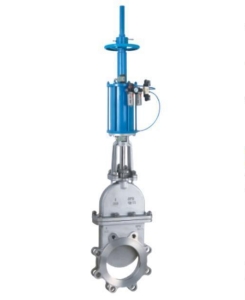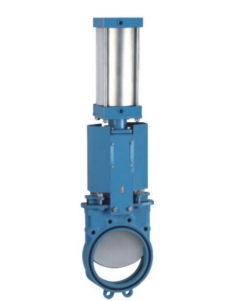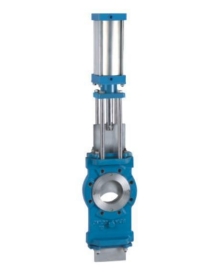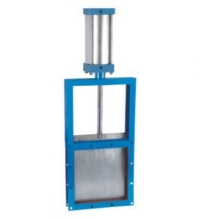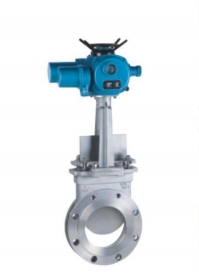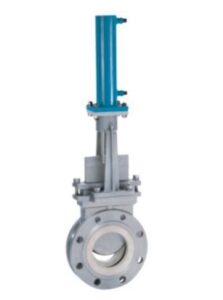
A needle valve is a valve that uses a tapered needle to regulate flow. Needle valves are often used in applications where very fine flow rate control is required, such as in laboratory equipment and analytical instruments.
Needle valves can also be used to regulate gas or liquid flow in various applications. Needle valves are constructed with a screw that passes through a closed body. The point of the Needle is attached to the screw, and the tip of the Needle is tapered.
As the screw is turned, the Needle moves up or down, opening or closing the valve. Needle valves are available in various sizes and materials to suit different applications. Needle valves are an essential part of many types of equipment and can be found in many industries. BCST is one of the best needle valve manufacturers and supplies a large amount of material.
What are the types of needle valves?
- Instrument Needle Valve
- SS Needle Valve
- Gauge Needle Valve
1. Instrument Needle Valve
Instrument needle valves are used in various applications to regulate or control the flow of liquids or gases. The valves are often found in pipelines, process lines, and other systems where precise fluid flow regulation is required.
Instrument needle valves typically have a small, tapered tip that can be inserted into a threaded fitting or port. The valve is opened and closed by turning the handle, which moves the tip up or down. This allows for very fine control of the flow rate, making instrument needle valves an ideal choice for applications where precise regulation is essential.

Instrument needle valves are devices that control the flow of liquids or gases in a piping system. They are often used in instrumentation and control systems, where precise fluid flow regulation is critical. Instrument needle valves typically have a screw-type or knob-type handle that can be turned to open or close the valve.
The valves are designed so that the fluid flow is not restricted when the handle is in the “open” position. The fluid flow is restricted when the handle is in the “closed” position. Instrument needle valves are available in various sizes and materials, depending on the application.
Instrument needle valves can be used in both low-pressure and high-pressure applications. In some cases, they may also be used in vacuum applications. Instrument needle valves are commonly used in the laboratory and industrial settings.
Features
- Instrument needle valves are used in various industries for precise regulation of fluid flow.
- Needle valves are often used in analytical instrumentation, where they are used to control the flow of gas or liquid through a variety of columns and other pieces of equipment.
- Instrument needle valves are also used in the medical industry, where they are used to regulate the flow of fluids through intravenous lines and other devices.
- Instrument needle valves typically have a fine-threaded stem, allowing precise flow regulation. In addition, instrument needle valves often have a pointed tip, which allows for precise control over flow direction.
- Instrument needle valves are available in various materials, including brass, stainless steel, and plastic. Instrument needle valves can be manually operated or actuated by various automated devices.
- The Instrument Needle Valve is a precision valve used to control the flow of fluids. It is designed for instrumentation and process control systems where accurate flow control is required.
- The Instrument Needle Valve features a self-contained, sealed mechanism that does not require lubrication or sealing fluid. This makes the Instrument Needle Valve ideal for hazardous or explosive environments.
- The Instrument Needle Valve is available in various materials and configurations to meet the specific needs of your application.
2.SS Needle Valve
SS needle valve is a type of valve used to control the flow of fluids. It consists of a long, thin needle inserted into the valve body. The Needle is connected to a handle that can be turned to open or close the valve.
SS stands for Stainless Steel, and this type of valve is made from this material because it is resistant to corrosion. SS needle valves are often used in applications where there is a need to control the flow of corrosive liquids, such as in chemical plants or oil refineries.

They are also used in applications where a high degree of accuracy is required, such as in laboratory settings. SS needle valves are available in a variety of sizes, and with different features, so it is important to select the right one for the application.
SS needle valve is a valve with a tapered needle that is actuated by a screw. The SS in the SS needle valve stands for stainless steel. As the name implies, SS needle valves are made of stainless steel, a strong, durable, and corrosion-resistant material.
SS needle valves are used in various applications, including regulating the flow of fluids in pipelines and controlling the pressure in systems. SS needle valves are available in various sizes and styles to meet the specific needs of different applications. When choosing an SS needle valve, it is important to consider the application and the system’s maximum operating pressure.
Features
- The SS Needle Valve is a great addition to any garden. It is made of durable stainless steel and features a comfortable grip for easy use.
- The SS Needle Valve is also adjustable, so you can get the perfect flow rate for your garden. In addition, the SS Needle Valve comes with a built-in filter to help keep your garden looking its best.
- With its many features, the SS Needle Valve is sure to be a valuable addition to your gardening toolkit. Thanks for choosing the SS Needle Valve.
- The SS Needle Valve is great for a high-quality, durable valve. This valve is made of stainless steel, making it resistant to corrosion and rust.
- It is also specifically designed to be used with SS tubing, making it the perfect choice for those using this type of tubing in their system.
- Finally, this valve has a comfortable grip handle, making it easy to operate.
3.Gauge Needle Valve
Gauge needle valves are designed for use in high-pressure applications. They control the flow of fluids, gases, and vapors. Gauge needle valves have a conical seat and a tapered needle to control the flow.
The Needle is inserted into the seat, allowing the fluid to flow through the valve. The seat helps to seal the fluid in place and prevent leakage. The Needle can be turned to adjust the flow rate.

Gauge needle valves are often used when precision is required, such as in scientific research or manufacturing. Gauge needle valves are available in a variety of sizes and materials. They can be made from brass, stainless steel, or other materials. Gauge needle valves are an essential piece of equipment in many industries.
Gauge needle valves control the flow of liquids and gases in various applications. The valve is designed with a long, tapered needle that fits snugly into a seat. When the Needle is turned, it opens or closes the flow of liquid or gas.
Gauge needle valves are often used in high-pressure applications, such as hydraulic systems. They are also used in medical devices, such as IV drips and laboratory equipment. Gauge needle valves are available in various sizes and materials to meet the needs of different applications.
Features
- The Gauge Needle Valve is a small, precision valve often used in applications where very fine fluid flow control is required.
- The valve consists of a needle that is attached to a handle. The Needle is slowly rotated to open or close the valve. This type of valve is often used in laboratory and scientific settings, where precise control over the flow of liquids is essential.
- Gauge needle valves are also used in industrial applications, such as the control of hydraulic fluids.
- The Gauge Needle Valve is essential for those in the know. From its durable construction to its easy-to-use design, this valve is a must-have for anyone who wants to regulate pressure precisely.
- The Gauge Needle Valve features a large, easy-to-read dial that makes it simple to adjust the flow of gas or liquids.
- The valve’s needle design also ensures no leakage, even at high pressures. And because it is made from brass, the Gauge Needle Valve is built to last.
So, if you’re looking for a reliable way to control the flow of fluids, look no further than the Gauge Needle Valve.
Conclusion
Needle valves are an important part of many machines and engines. By controlling fluid or gas flow through a small opening, they can regulate the pressure and speed of the fluid or gas. Needle valves are often used in engines to control the fuel mixture and in machines to ensure that the correct amount of lubricating oil is used. Needle valves are available in various sizes and materials and can be customized to meet the needs of any application. Needle valves are an essential component of many different types of machinery. By controlling the flow of fluids, they help to ensure that delicate processes are carried out safely and effectively. In conclusion, needle valves play a vital role in various industries, and their importance is likely to continue to grow in the years to come.
If you have questions about items like needle valves or other products, you may contact the BSCT firm.

